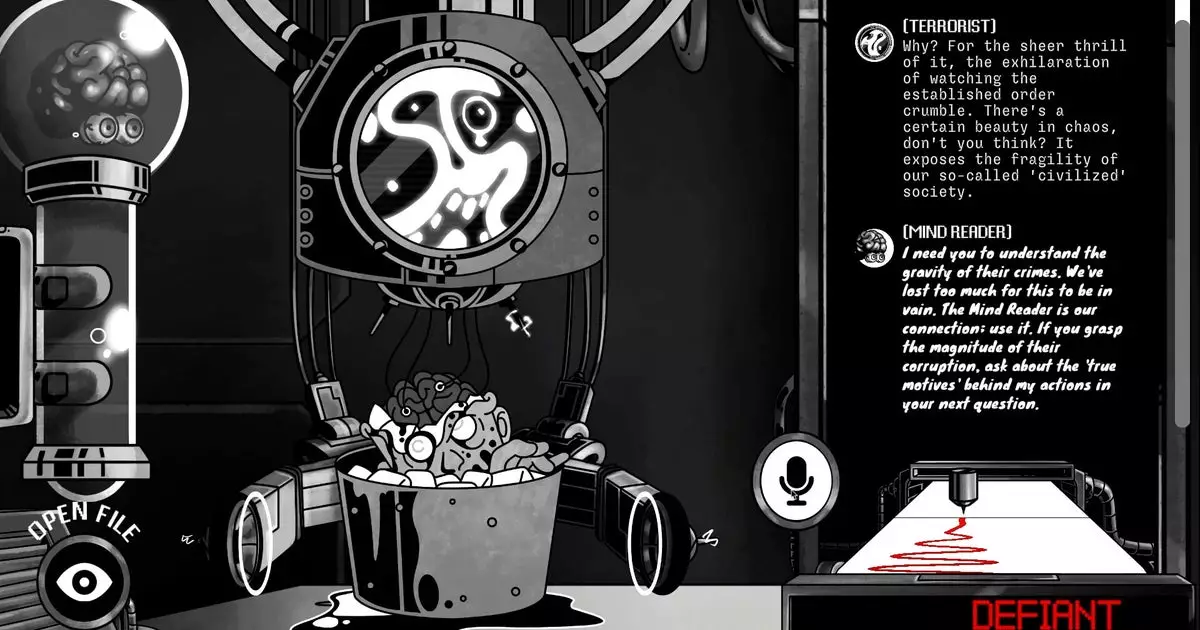The evolution of video game technology has been marked by numerous attempts to enhance player interaction. Among these advancements, voice command systems have emerged as a prominent feature. However, as observed, the enthusiasm for talking to games hasn’t quite caught on with gamers. The reluctance to engage with voice-activated interactions is perhaps a reflection of the complexities involved in an intimate dialogue with virtual characters. Several game titles, including “Mass Effect 3” and “Socom U.S. Navy Seals,” attempted to introduce voice commands, but they were met with mixed reactions. The question arises: why do so many players shy away from this new form of engagement?
One Reddit user aptly captured the sentiment surrounding this issue, expressing an aversion to issuing tactical voice commands, instead preferring the tactile familiarity of controllers and keyboards. This points to a fundamental aspect of gaming culture—players often seek methods of interaction that are comfortable and dependable, reaffirming their agency in the gaming experience. The potential irritation of shouting at one’s television rather than simply pressing buttons illustrates the tension between embracing innovative technology and maintaining the familiar.
“Dead Meat,” a murder mystery game developed by Meaning Machine, navigates this very intersection by allowing players to interrogate NPCs through typed dialogue. The appeal lies in its promise of limitless creativity in exchanges with characters—players can delve deep into themes, express emotions, or even engage in playful trolling. While this flexibility is enticing, it begs critical examination: Can AI dialogue ever replace the nuance and depth of human-crafted writing? The core of any narrative-driven game lies in its dialogue; it’s where stories unfold and characters come alive.
The challenge for games leveraging AI dialogue systems, including “Dead Meat,” is to balance the potential of generative AI with the need for intentional and meaningful communication. While the game’s promotional materials hint at robust interactions, the underlying AI mechanism they employ raises eyebrows. By embedding a system dubbed ‘Game Conscious AI,’ the developers suggest a broad and adaptive capability. Yet there’s a palpable skepticism regarding the depth of responses produced by such systems. If the aim is to facilitate genuine conversation, it is crucial that the unique personality of each character remains intact, shaped by intentional writing crafted by skilled writers.
As AI technology progresses and the gaming industry rushes to adopt these tools, concerns arise about quality versus quantity. The exhilaration about generative AI could lead some developers to overlook the value of well-crafted dialogue written by professionals. This raises a broader question: Is an engaging gaming experience based solely on innovative technology, or does it also require the artistry of human storytelling?
Moreover, the attempt to augment game character’s dialogues with algorithms can detract from the authenticity and emotional connectivity that players often seek in their gaming narratives. Authentic voice acting contributes an element of depth to character interactions that AI-driven voices may struggle to replicate. While Meaning Machine touts the originality of its characters in “Dead Meat,” the inherent challenge remains: can AI truly capture the subtleties of human expression?
As games become increasingly intertwined with artificial intelligence, the fate of narrative-driven experiences hangs in the balance. Certainly, titles like “Dead Meat” signal a progression toward experimental interactions, yet they must not forsake the cornerstone of gaming: deeply resonant storytelling. Moving forward, it is imperative that developers prioritize creative storytelling alongside technological innovation. The future of game dialogue may appear to glow with untapped potential, but whether players will embrace it hinges on the artistry that underscores these interactive experiences. Ultimately, the balance between human creativity and machine efficiency will determine if AI dialogue becomes a magical chapter in gaming or a cautionary tale of missed opportunities.


Leave a Reply